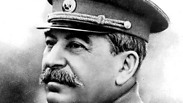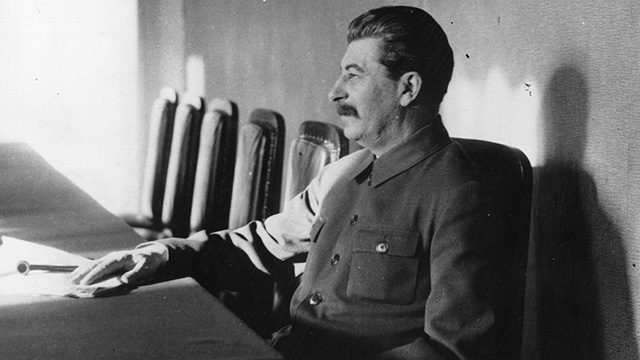
Russia's forgotten role in the creation of Israel
Op-ed: Without Soviet aid at the critical moment in the late 1940s, it would have been very difficult for the State of Israel to have been born.
The fact that the creation of Israel owed a lot to that well-known anti-Semite, Joseph Stalin, is truly ironic. For Stalin launched the black years of Soviet Jewry (1948-1953) in which thousands of Jews were assailed as "rootless cosmopolitans" and lost their jobs. In 1952 he promoted the vicious anti-Semitic "Doctors' Plot." Many feel that he may have planned before his death in 1953 to deport the Jews of Leningrad and Moscow to camps in the east.
Even during the 1947-1948 period, Stalin refused the entreaty of thousands of Soviet Jews to go to Israel and fight for its independence. Many even wrote to Stalin, asking him to bless "Stalin Brigades" fighting for Israel against the Arabs.
Given the tens of thousands of Soviet Jews who served as officers (and even hundreds who served as generals) in the Red Army in World War II, this would have been an immense help to the fledgling state. So too would it have been very useful to have some of the thousands of Russian Jews who helped the Soviet Union create and build katyushas, tanks and airplanes.

Despite this, Stalin played a vital, if often unappreciated, role in the creation of the Jewish state. At the United Nations, where the vote on independence was going to be close, he had his Ambassador Andrei Gromyko give an impassioned speech in 1947 on the terrible fate suffered by Jews in the war and their need to have an independent state. Stalin then organized the Eastern European Communist states to vote for the creation of Israel as a the decisive bloc that provided the two-thirds majority needed for victory in the UN vote of November 29, 1947.
In 1948 he allowed the Skoda factory in Czechoslovakia to ship desperately needed heavier weapons to the struggling new Israeli army. Of course, he also sold them to Syria, but Israeli intelligence interrupted the flow of weapons in Italy and brought them safely to Israel. David Ben-Gurion once said that without the Soviet arms the state would never have survived the onslaught of five Arab armies.
The obvious question is why Stalin, despite his anti-Semitic nature and statements, did these things? What did he hope to gain, and why shortly thereafter did he turn against Israel?
He had two clear hopes, the first of which was partly realized. He hoped that the creation of Israel would create chaos in the region and bring about the downfall of the British Empire. Then he hoped that Israel, with strong socialist leadership, might become a quasi-satellite of the Soviet Union.
While this didn't happen when Mapam did not do well in the first election, Israel did refuse to send a military detachment to fight on the side of the United States in the Korean War. In 1950, Golda Meir declared Israel neutral in the Cold War. As late as 1952, Israeli leftists on May Day paraded around with pictures of Stalin.
After Stalin's ideas failed, his successors had little problem selling weapons to Egypt starting in 1955. For the next 25 years the Soviet Union provided many billions of dollars of weapons to Arab states in their ensuing four wars with Israel.
But ever since the fall of the Soviet Union in 1991, Israel and Russia - sharing common interests and common enemies - have again become much closer, though not as close as in the late 1940s, when, without Soviet aid at the critical moment, it would have been very difficult for Israel to have been born.
Jonathan Adelman is professor at the Josef Korbel School of International Studies at the University of Denver.










